Search
 News
News
UCSF Among First in U.S. to Receive New Surgery Designation from the American College of Surgeons
UC San Francisco Medical Center (UCSF) is among just four hospitals in the U.S. to be verified as part of the American College of Surgeons (ACS) Vascular Verification Program (Vascular-VP)... News
News
Can Artificial Intelligence Reduce Invasive Testing and Improve Cardiac Diagnostics?
Coronary heart disease is the leading cause of adult death worldwide. Video
Video
Everyday Heart Disease Prevention: An Update on Risk Assessment and Clinical Strategies
With heart disease deaths on the upswing since 2010, primary care providers must routinely develop individualized plans to protect their patients from atherosclerosis. News
News
UCSF’s Division of Cardiology to Partner with Rosenman Institute
UC San Francisco’s Division of Cardiology has joined with the Rosenman Institute to speed the development of health-tech innovation at UCSF.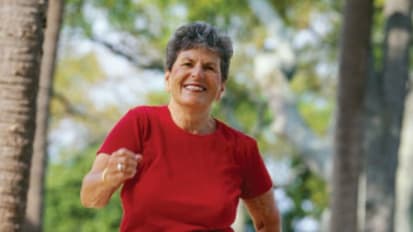 Document
Document
Advanced Heart Failure Clinic at Walnut Creek
Through a collaboration between John Muir Health and UCSF Health, patients with advanced heart failure have access to specialized care in Walnut Creek. Document
Document
Interventional Cardiology Program
The UCSF Interventional Cardiology Program offers the latest minimally invasive catheter-based procedures to diagnose and treat the full spectrum of cardiovascular conditions. Document
Document
Cardio-Oncology & Immunology: Specialized Cardiovascular Care for Cancer Patients
Led by a multidisciplinary team of specialists and researchers, our program optimizes the cardiovascular health of cancer patients and cancer survivors. Video
Video
A Fresh Look at Lipids: Atherosclerosis Prevention in 2023
Cardiologist Clifton Watt, MD, presents an update on lipoproteins, including how genetic factors can impact test results and whether pre-measurement fasting actually matters.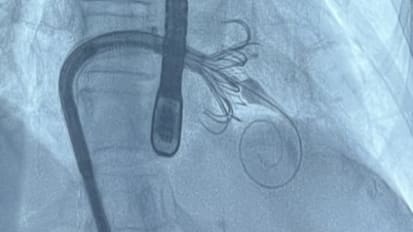 News
News
Novel Tricuspid and Mitral Valve Procedures Improve Patients' Quality of Life
UC San Francisco interventional cardiologists and interventional echocardiographers recently performed two novel minimally invasive cardiac procedures for the first time in the health system. News
News
Chances of Receiving Percutaneous Coronary Intervention in a Low-Volume Facility are Increasing, Despite Worse Outcomes
There is a well-established association between hospitals performing higher volumes of percutaneous coronary intervention (PCI) and improved patient outcomes. News
News
How the Cardiogenic Shock Team Improves Patient Outcomes at UCSF
A 69-year-old woman with heart failure with reduced ejection fraction caused by left ventricular noncompaction (LVNC) came to the UCSF emergency department with tachycardia, dizziness, shortness of breath and swelling, despite taking all prescribed heart failure medications. News
News
UCSF Health Joins Registry to Improve Cardiogenic Shock Treatment
UC San Francisco’s Heart and Vascular Center has been recognized by The American Heart Association (AHA) for its participation in a new Cardiogenic Shock Registry. News
News
Ross Procedure the Right Choice for Active Patient With Aortic Stenosis
A 52-year-old man with severe aortic stenosis chose to undergo a Ross procedure at UCSF during which surgeons replaced his diseased aortic valve with his own pulmonary valve. He was discharged within a week and is recovering well. News
News
Structural Heart Disease Expert Leads UCSF Interventional Cardiology Program
Sammy Elmariah, MD, MPH, has joined UCSF as chief of the Interventional Cardiology Program and medical director of the cardiac catheterization lab. Video
Video
Don’t Miss a Beat on A-fib: How to Make the Right Plans for Individual Patients
This practical, data-fueled talk from Edward P. Gerstenfeld, MD, MS, FACC, chief of the UCSF Cardiac Electrophysiology and Arrhythmia Service, will help PCPs better understand how to assess stroke risk; make treatment decisions...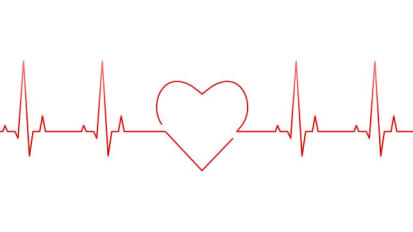 Document
Document
Cardiology Transfer Guide
Cardiology Transfer Guide Document
Document
UCSF Health Transfer Center Intake Workflow
UCSF Health Transfer Center Intake Workflow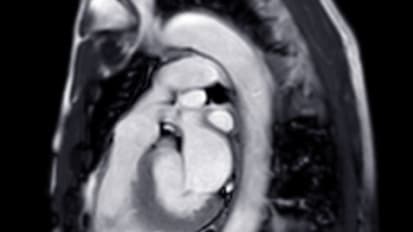 News
News
UCSF Researchers Develop Prediction Model of Aortic Aneurysm
Ascending thoracic aortic disease is an important cause of sudden death in the U.S., yet most aortic aneurysms are identified incidentally.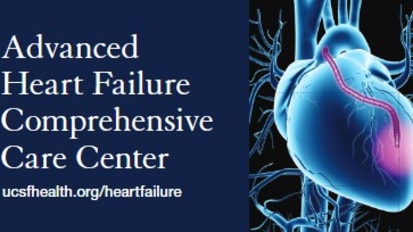 Document
Document
Advanced Heart Failure Comprehensive Care Center Physician Pocket Card
Referral guide and contact information for advanced heart failure specialists at UCSF. News
News
UCSF Sheds Light on the Reasons Behind Sex Differences in Myocarditis
This study suggests mechanisms behind why myocarditis associated with cancer immunotherapies may occur more frequently in female patients. Document
Document
Advanced Heart Failure Comprehensive Care Center
The Advanced Heart Failure Comprehensive Care Center (AHF CCC) at UCSF offers coordinated and comprehensive care for heart failure patients.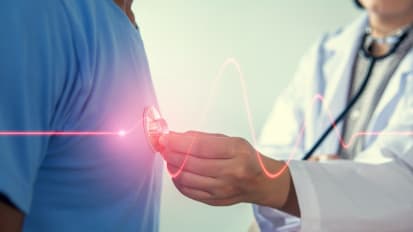 Video
Video
Common Vascular Conditions: Simple Screening Rules and Better Treatment Tactics
Vascular surgeon Shant Vartanian, MD, presents an update on understanding and managing abdominal aortic aneurysms and peripheral artery disease – prevalent age-linked disorders with significant morbidity and mortality. Video
Video
Learning and Lowering Cardiovascular Risk: Effective, Efficient Strategies
This data-driven presentation from cardiologist Eveline Stock, MD, will give you a better grasp on how to identify an at-risk patient. News
News
Physical Activity May Still Not Match Pre-Covid 19 Pandemic Levels
Step counts—a measure of physical activity—were markedly lower early in the COVID-19 pandemic than pre-pandemic and remained lower, on average, in the two years following the onset of the global pandemic.

